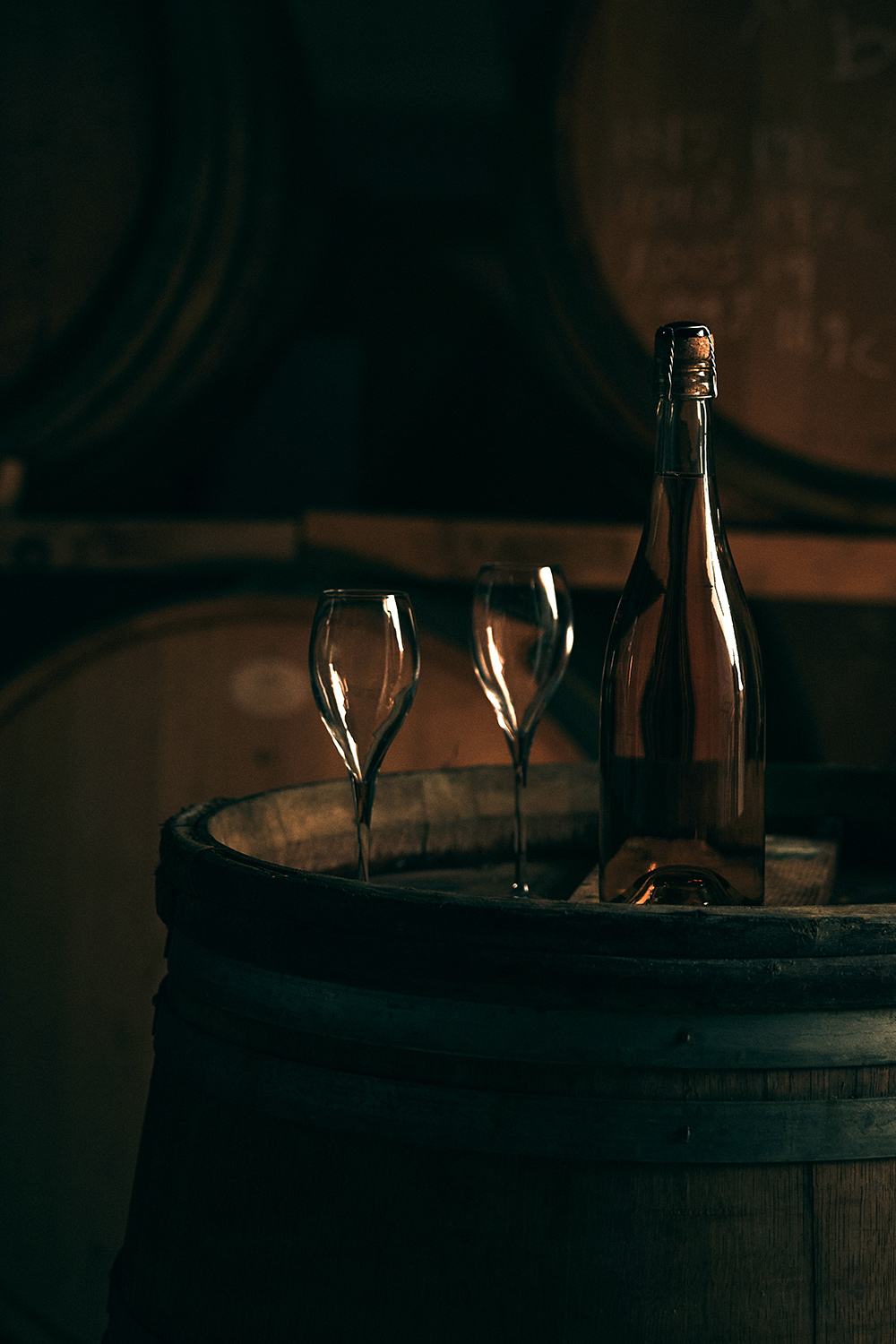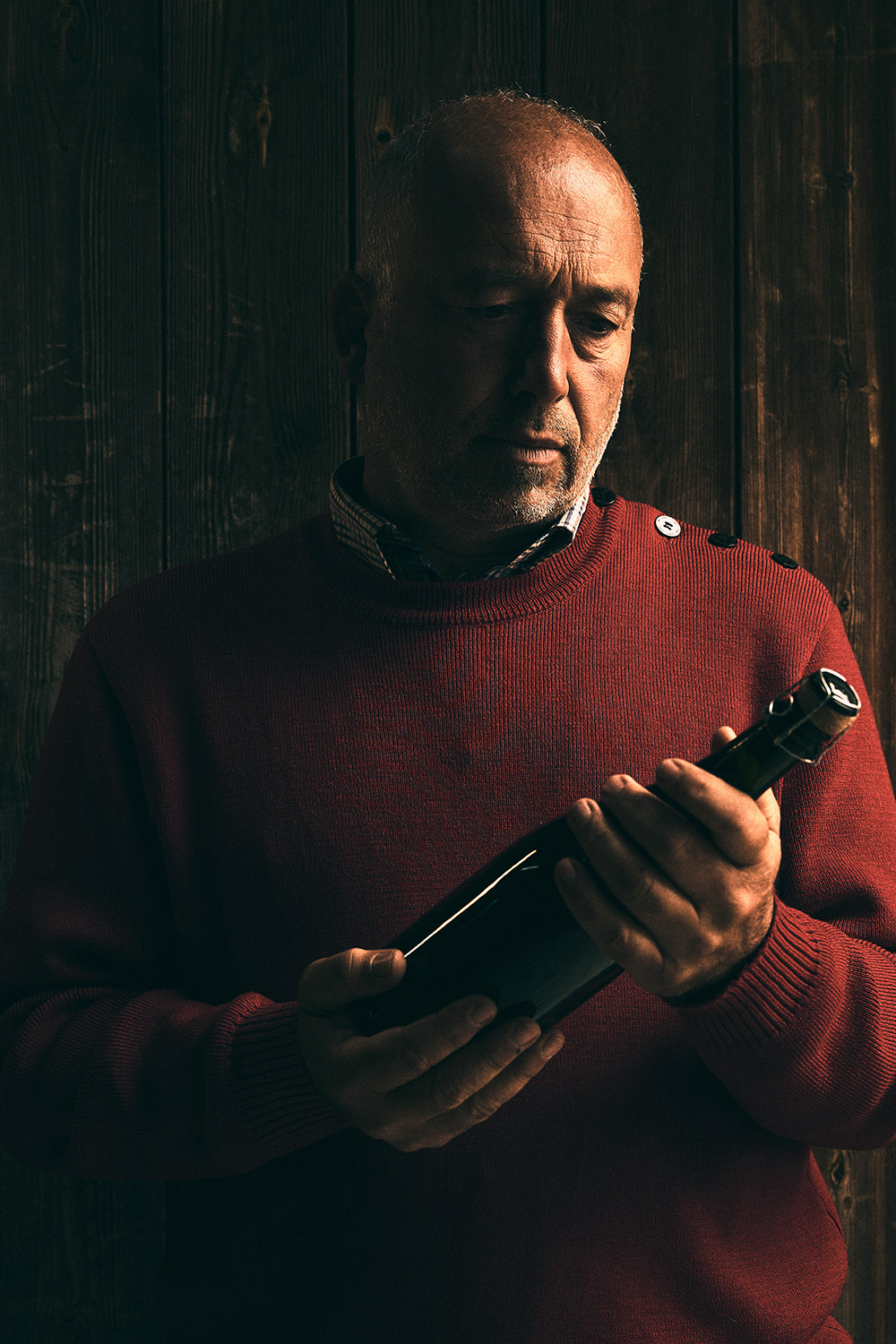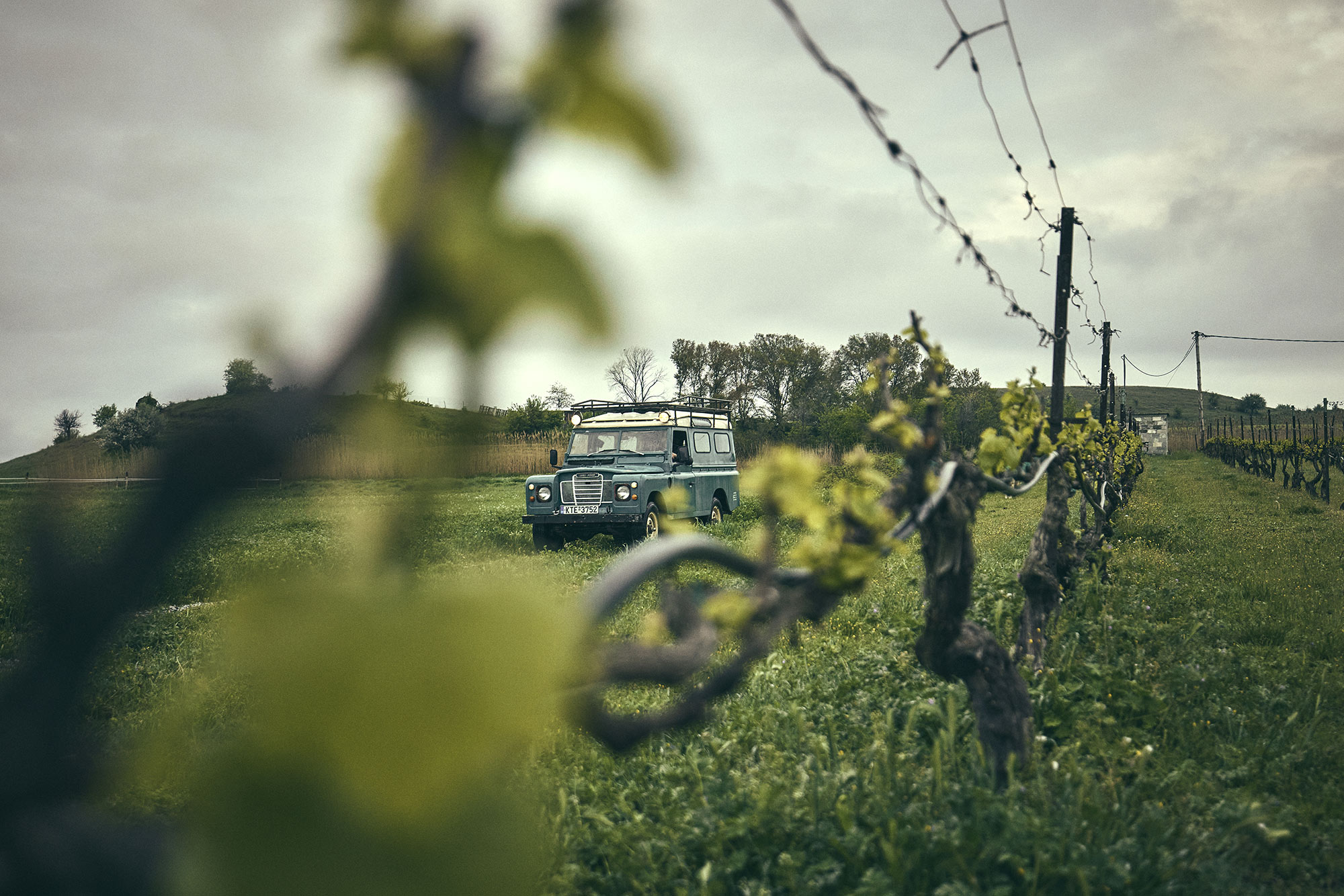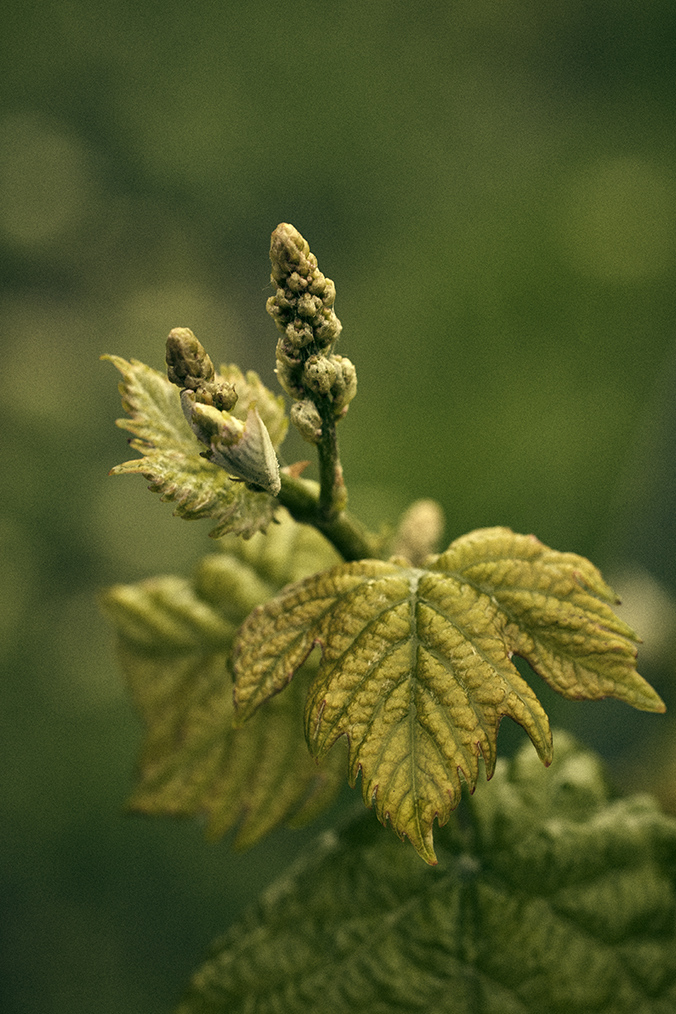The art of winemaking
The art of winemaking is a sacred dance, a ritual bestowed upon us by nature herself. It is a fusion of meticulous craftsmanship and the raw beauty of the grape.
At the heart of our winemaking philosophy lies a deep respect for the grapes and the land that nourishes them. We embrace the gentle touch, the delicate handling that allows the fruit to retain its pristine essence. Hand harvesting is our labor of love, ensuring that only the most exquisite, unblemished grapes find their way into our winery. With each tender touch, we bring forth the purest expression of the vineyard’s gifts.
In our quest for authenticity, we shun artificial interventions and allow nature to guide us. Native yeast, naturally occurring in the vineyard, becomes our partner in fermentation, bestowing upon our wines a complexity and depth of character that cannot be replicated. It is the symphony of nature’s own orchestra, conducted by the hands of our winemakers, that gives birth to each bottle.
When it comes to crafting our sparkling wines, we uphold the traditions of old. The méthode traditionnelle becomes our canvas, as the magic of a second fermentation in the bottle gives rise to the effervescent dance of bubbles. With patience and reverence, we allow time to work its alchemy, nurturing our wines for months, and sometimes years, to achieve perfection.
To liberate our sparkling wines from their lees, we embark on a labor-intensive process. Every bottle that has aged for more than 24 months is cradled in our hands (90 – 120 times), gently turned and rotated, riddled with care. With each twist and turn, we coax the dormant sediments to settle, unveiling the brilliance that lies within. This ritual, repeated tirelessly, three times a day, for an entire month, is a testament to our unwavering commitment to craftsmanship.
We invite you to join us in this sacred celebration of nature’s gifts, to immerse yourself in the artistry of winemaking, and to savor the fruits of our labor—a symphony of flavors and aromas that tell the story of the land, the artist, and the eternal dance between the two. Cheers to another day.
A ritual process
Our winemaking journey culminates in a cherished ritual—a testament to our unwavering commitment to crafting the finest sparkling wines. As the riddling process concludes, we embark on a meticulous disgorging process, chosen with the utmost precision, aligning with the moon’s ideal phase. This celestial synchrony occurs approximately 6 to 8 times each year and is pivotal in ensuring the creation of the most exquisite bubbles within our wines.
At Domaine Karanika, our devotion to purity and authenticity is the cornerstone of our craft. From the vine to the bottle, our unwavering dedication to excellence shines through. Beginning with the careful selection of pristine grapes, handpicked and concentrated, we uphold the sanctity of the grape’s natural essence. Our winemaking practices are a testament to this devotion, ensuring that our wines remain unadulterated by additives that deviate from the grape’s true character. With the exception of the essential sulfite treatment, our wines remain untouched by not-natural tannins, clarifying agents, stabilizers, preservatives, color enhancers, or smootheners.
This revered ritual embodies the essence of our winemaking philosophy, elevating each bottle to a masterpiece of purity, refinement, and exceptional taste.
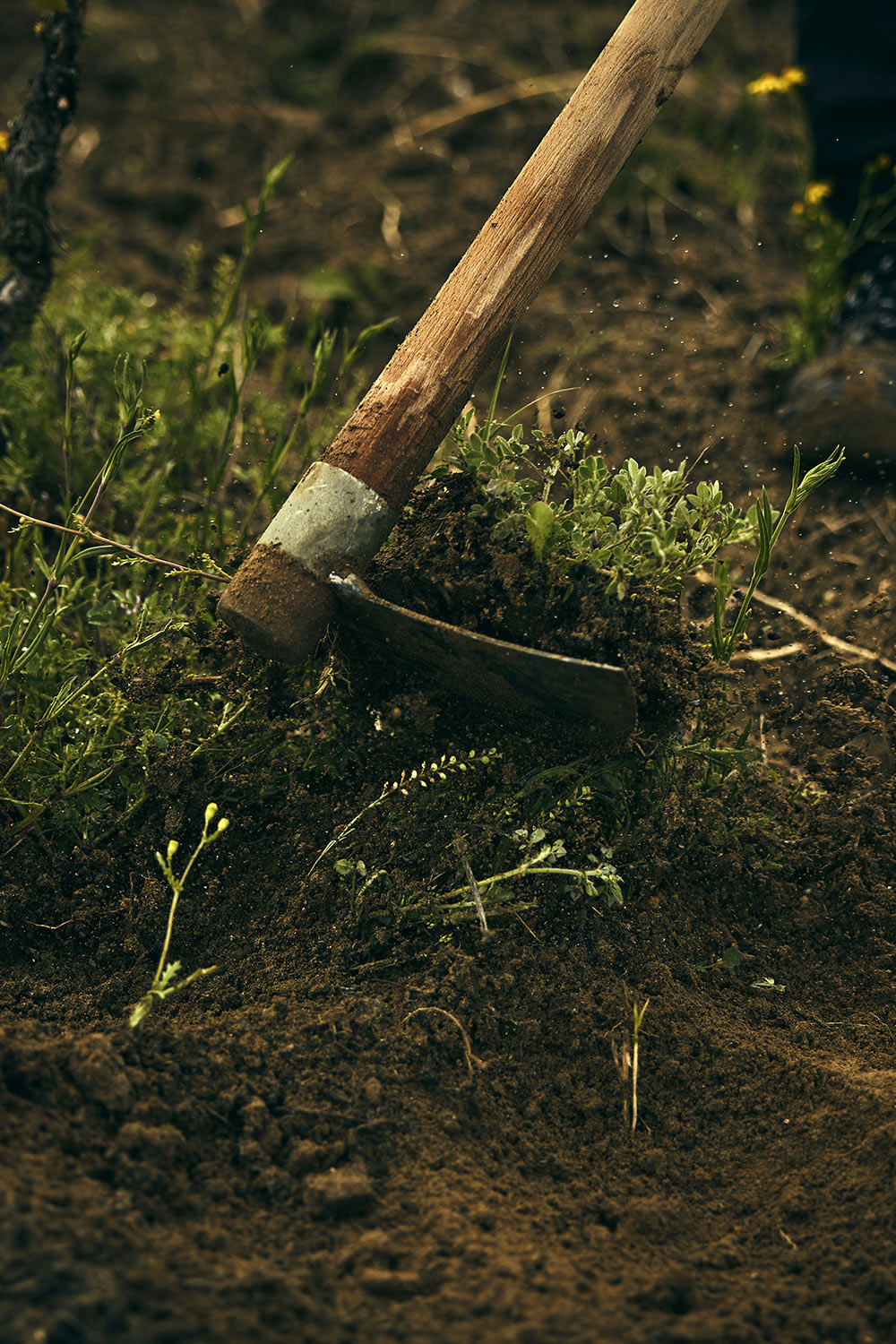
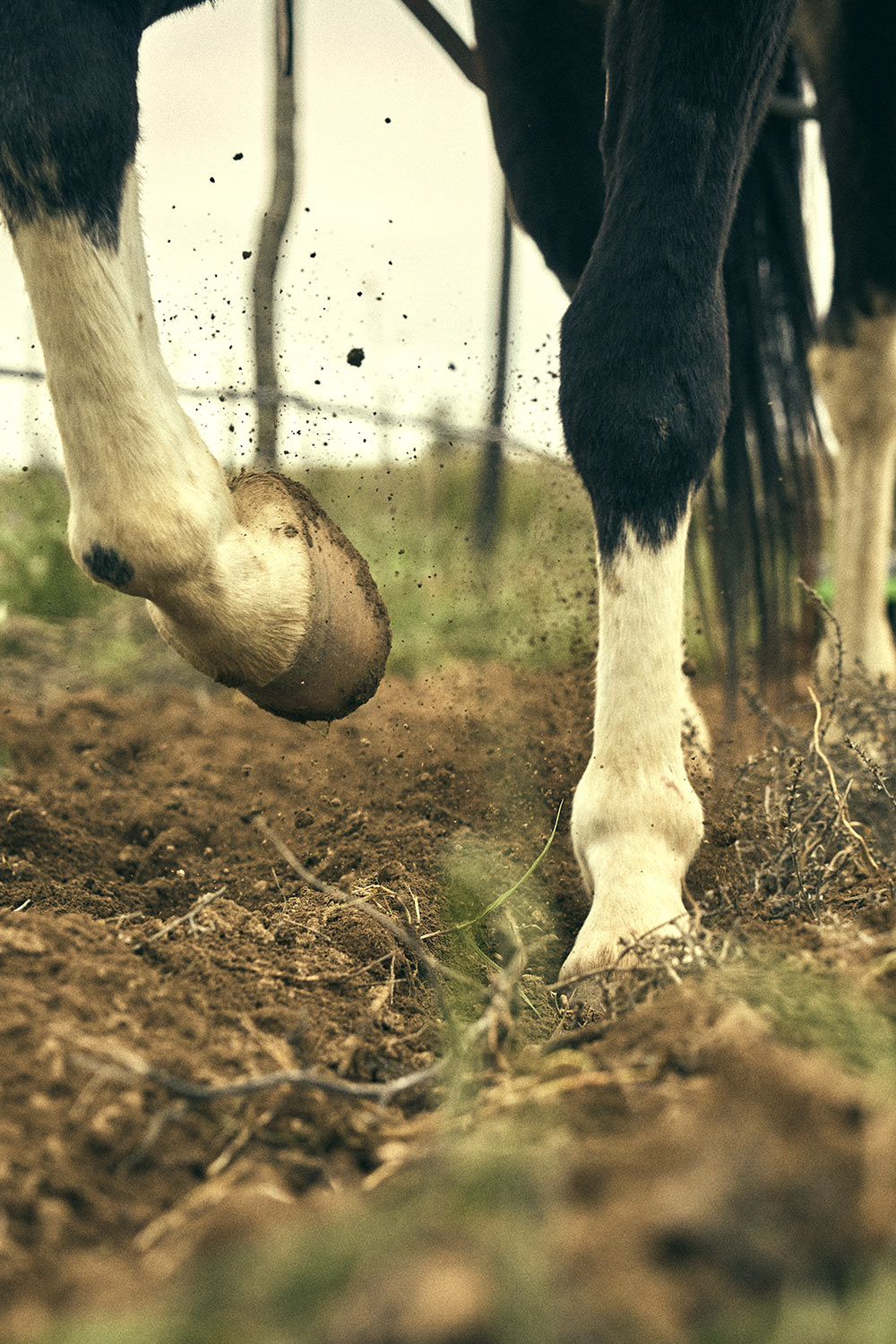

Holistic organic farming
Our approach to farming transcends the mere pursuit of maximizing production; it’s a profound commitment to harnessing the earth’s inherent excellence. At Domaine Karanika, we consider ourselves stewards of an intricate ecological tapestry, and our mission is to empower it to flourish to its fullest potential while harmonizing the qualitative demands of the Winery with those of Mother Nature. In this intricate dance, we recognize the interconnectedness of all aspects of our operations.
Our vision is for our Domaine to stand as a self-sustaining organism in its own right. To achieve this, we strive to create a delicate equilibrium in which our activities mutually reinforce and balance each other. We minimize the use of external inputs, such as fertilizers, and focus on giving back more to the vineyard than we extract from it. Central to our methodology is the use of compost, a cornerstone in our quest for vitality and health in the soil and crops. By infusing biodynamic compost preparations in minuscule quantities, we invigorate the composting process and expedite the formation of humus.
Consequently, this boosts microbial activity, promotes harmonious plant growth, and ultimately yields healthier, more resilient grapevines, which in turn, translate into the remarkable quality of our wines.
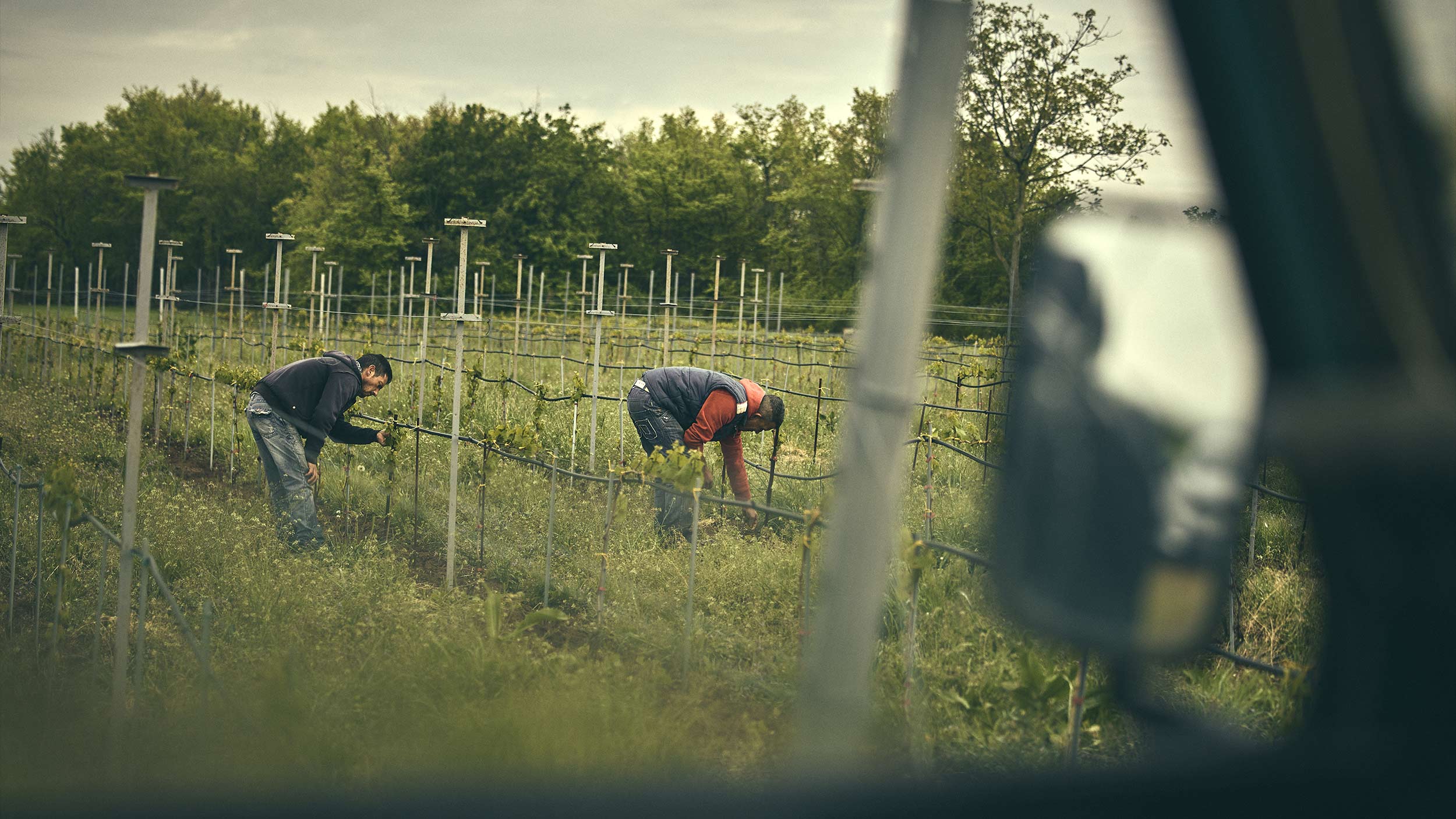

Sustainability: Our commitment to nature
At Domaine Karanika, our unwavering commitment to coexisting harmoniously with nature is at the heart of everything we do. Our winery stands as a testament to sustainable practices: it boasts complete thermal insulation, relies on solar energy to heat water, and harnesses the subzero temperatures of December through March for cold stabilizing our base wines. We place great emphasis on reducing waste by composting grape skins, horse manure, and organic farm byproducts like hay and weeds. In our vineyards and winery, chemicals have no place; instead, we adopt natural, organic approaches. On our estate, a flourishing biodynamic fruit and vegetable garden thrives, showcasing our dedication to organic cultivation.
Furthermore, we actively encourage eco-tourism in the picturesque Amyndeon area, promoting the region’s natural beauty and ecological significance. To minimize our environmental impact, we meticulously sort glass, cardboard, and plastic for recycling through the municipal program. Water, a precious resource, is conserved and repurposed within our winery. Our self-designed septic tanks biologically treat wastewater, which is then used to irrigate select vineyards during rare periods of heat stress. This sustainable cycle is possible due to our exclusive use of biodegradable cleaning agents, such as soda, citric acid, and warm water. With energy-efficient operations, manual grape harvesting, and minimal tractor usage (primarily for biodynamic and aetheric oil applications), our carbon footprint remains admirably low. We prioritize short-distance grape transportation, significantly reducing our ecological impact compared to conventional production chains. At Domaine Karanika, our commitment to sustainability extends beyond mere rhetoric; it’s a fundamental part of our identity and an integral element of our winemaking journey.
A unique wine comes to life
